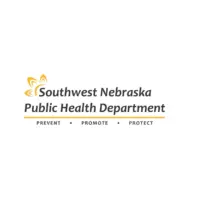
A second positive case of rabies in an animal has been reported to Southwest Nebraska Public Health Department (SWNPHD). This positive rabies test was from a raccoon in Chase County. This is the second animal to test positive in Chase County so residents should be on alert.
In raccoons and other warm-blooded animals, rabies is a deadly virus that causes inflammation of the brain. People may be exposed to rabies from saliva or blood, most commonly through a bite or contact with an infected wild animal. They may also be exposed through pets or livestock that were infected after contact with a contagious wild animal.
“We sometimes see a few rabies cases in animals here in southwest Nebraska,” explains Melissa Propp RN, Clinic Manager with SWNPHD. “It is a good idea to be aware of the risks and know what to do to. We can lower our risk of rabies with good animal safety habits like vaccinating pets, knowing the signs of rabies, and what to do if bitten.”
Animal safety
The best method to prevent rabies is to make sure that pets, livestock, and horses are protected against rabies with current vaccinations. This creates a protective layer around you and your family. Talk to your veterinarian if you are unsure if your pets are up to date.
If you see a wild animal or an animal you do not know, give it plenty of space. You can use binoculars to watch wildlife safely from a distance.
Signs of rabies
Rabies should be suspected in all animals that show a sudden change in behavior that is different from normal, such as animals normally active at night being seen during the day. Signs of rabies in animals may include any of the following:
- Increased aggression
- Odd behavior changes, nervousness, irritability
- Difficulty eating or drinking
- Excessive drooling
If you think you see an animal showing signs of rabies, contact the police or sheriff’s department, or animal control if available.
What to do if bitten
If an animal bites you, wash the wounds immediately with soap and water. Then seek medical attention from a healthcare professional right away. Rabies affects the nervous system and should be treated quickly after an exposure.
If it is safe to do so, catch the animal and contact your local veterinarian to get it tested for rabies. It may save you the cost of preventive treatment. When handling the dead animal, follow safe handling steps:
- Avoid direct contact – do not touch the animal’s body, saliva, or any fluids that may be contaminated.
- Wear protective gear – gloves and eye protection.
- Keep your distance as much as possible.
- Use long-handled tools like a shovel to move the animal to a bag or other container that can be shut.
- Wash tools with soap and hot water or one part bleach to nine parts water.
- Wash your hands very well with soap and water when done.
If you have questions, you can always contact SWNPHD regarding rabies vaccination, testing, and exposures.
“Our public health system in Nebraska works well to protect us from rabies and other diseases,” continues Propp. “Our hospitals and clinics are ready to treat rabies exposures quickly and prevent disease.”
For more information contact Melissa Propp, RN at 308-345-4223. Southwest Nebraska Public Health Department serves Chase, Dundy, Frontier, Furnas, Hayes, Hitchcock, Keith, Perkins, and Red Willow counties. You can follow SWNPHD on Facebook, YouTube, and Instagram or view the website at www.swhealth.ne.gov which contains many resources and additional information helpful to prevent disease, promote and protect health.














